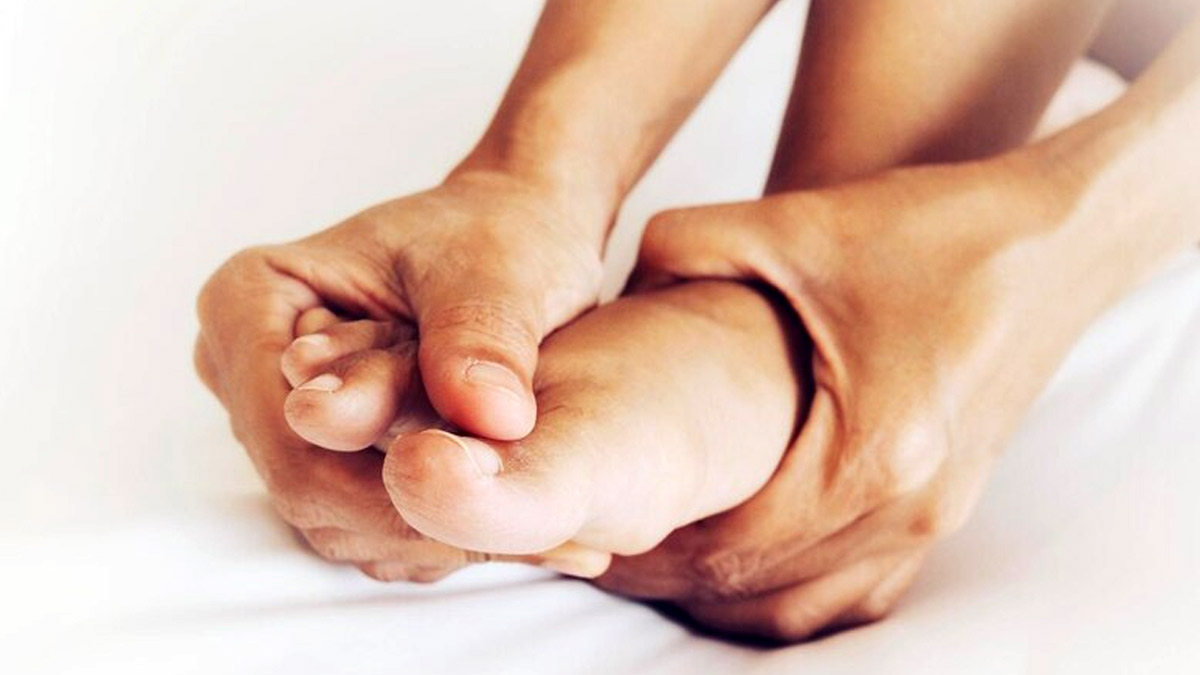
Your feet are probably the most hardworking portion of your body. Every day, they endure a beating by supporting our body weight and allowing us to walk, run, leap, and stand. The 26 bones in each foot and ankle, including more than 100 muscles, tendons, and ligaments work together to carry you wherever you need to go each day.
Table of Content:-
All that foot movement causes a lot of wear and tear. So it's hardly surprising that swollen feet are one of the most common ailments. However, there are other major reasons for swollen feet, some of which may be warning signs of health problems. Following are some reasons behind swollen feet.
Standing for Long Periods of Time
At the end of the day, anyone who works on their feet may feel like their shoes are too tight. People who must stand for lengthy amounts of time at work are prone to edoema.
Gravity causes blood to accumulate in the veins of your legs, causing edoema. Swelling is caused by blood fluid pooling in the tissues of your legs, foot, and ankles. You may find that your shoes are a little tighter than usual.

Sodium Chloride
One of the most common dietary causes of water retention is sodium chloride, which is a component of salt. The American Heart Association (AHA) recommends that individuals should take less than 2,300 mg of sodium per day or roughly one teaspoon.
Also read: Swollen Fingers In Winters? Check Out Its Causes And Treatment
To maintain the sodium level of your body, limit your intake of sodium by substituting sodium-free or low-sodium alternatives. You can check the salt level of foods by reading the nutrition labels.
Pregnancy
Swollen feet are an unavoidable part of pregnancy for many women. Foot swelling can be painful during pregnancy and intensifies as the due date approaches. Typically, swelling is not a cause for concern. However, if it occurs suddenly, especially in your hands and face, seek medical attention. Rapid swelling could be an indication of preeclampsia, which causes dangerously high blood pressure to appear suddenly.
Try some of the following ways to relieve swollen feet caused by pregnancy:
- Drink eight to ten glasses of water per day.
- Caffeine and salty meals should be avoided.
- Rest and raise your feet.
- Inquire with your doctor about support hose or compression socks.
Obesity
Obesity is defined as an abnormal accumulation of body fat that can lead to health problems. Obesity is determined by a person's body mass index (BMI). A person with a BMI of more than 30 is termed obese.
According to a 2015 paper published in Plastic and Reconstructive Surgery Global Open, a person with a BMI more than 50 may experience lower extremity edoema. According to the researchers, once your BMI hits 50, losing weight may not be enough to reverse the edoema.
Also read: Do You Have Swollen Gums? Here Are Some Natural Ways To Get Aid
Injury
If you sprained your ankle while working out at the gym, suffered a stress fracture in your leg or toe, or had surgery on your leg, ankle, or foot. These types of injuries can cause swelling in and around your feet.
Premenstrual Syndrome (PMS)
Some women have to bloat during the week preceding their periods. According to a 2015 study published in the International Journal of Women's Health, a soggy feeling is a normal effect of sodium and water retention following ovulation.

Premenstrual syndrome (PMS) symptoms occur shortly after ovulation and before your period. Swollen feet, in addition to bloating, is a possible symptom of PMS. According to the findings, 65% of the women found to experience swelling during the premenstrual stage of their menstrual cycles.
Heart Attack
Heart failure occurs when your heart does not pump enough blood. When a person has heart failure, blood backs up in the veins, causing fluid buildup. Swollen feet are a common symptom of heart failure.
Image credit-- FreePik
Also watch this video
How we keep this article up to date:
We work with experts and keep a close eye on the latest in health and wellness. Whenever there is a new research or helpful information, we update our articles with accurate and useful advice.
Current Version